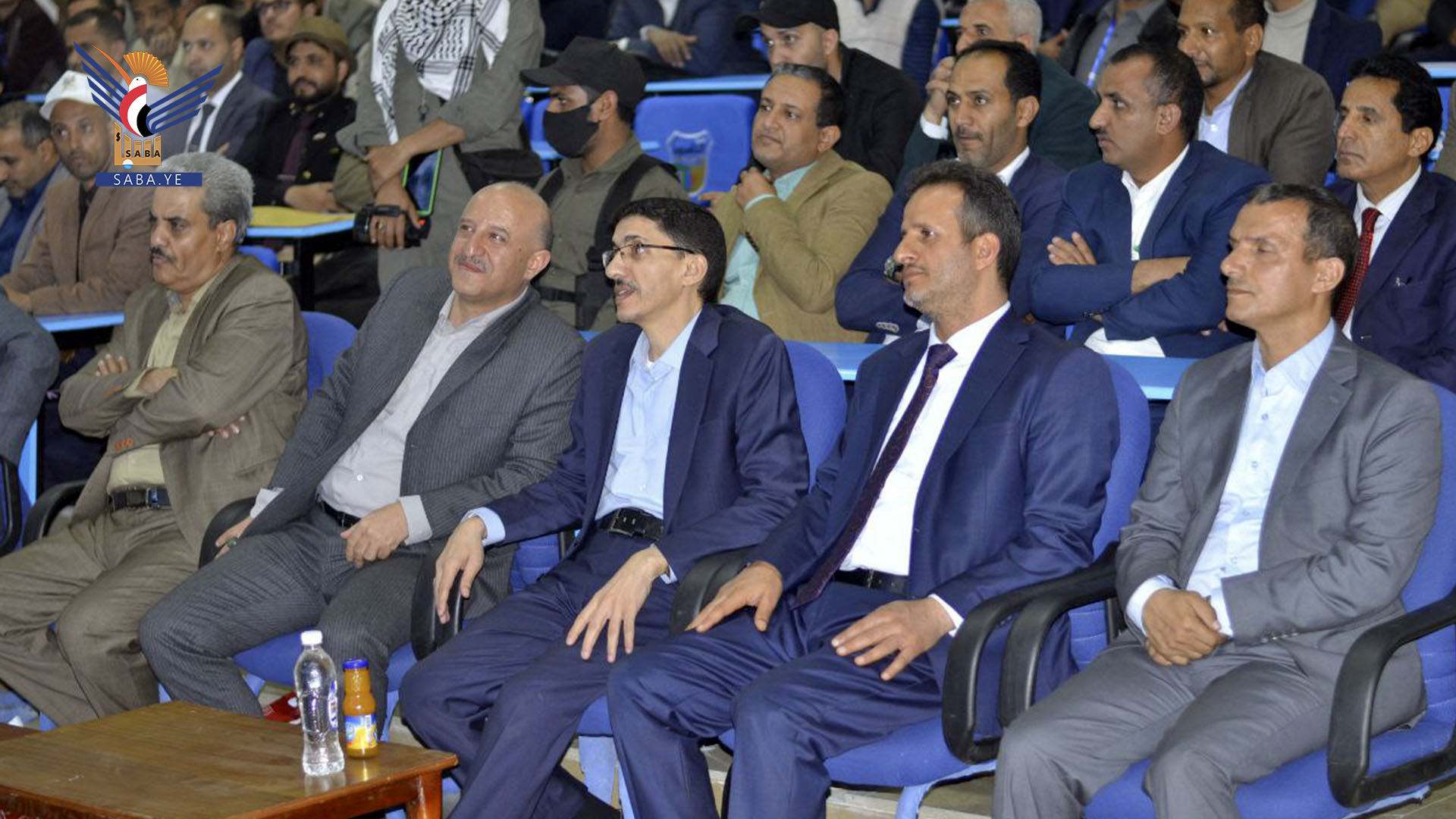Sana'a - Saba:
Sana'a University hosted an awareness symposium on Sunday titled "The Danger of the Entry of the American Communications and Internet Company - Starlink, -Yemen and the Risks to Social Peace and National Security."
The event was organized by the College of Computer and Information Technology and the Science and Technology Center at the university.
Attended by Minister of Education Hassan al-Sa'adi and Rector of Sana'a University Dr. al-Qasim Abbas, the symposium aimed to highlight the potential threats posed by Starlink’s operations in Yemen.
Dr. Abbas emphasized that controlling information is key to controlling the world, and warned about the implications of Starlink’s technology, pointing out that the company, founded by Elon Musk, is influenced by Zionist lobbies and plays a role in global control.
The university rector criticized the influence of western culture, especially through the promotion of figures that support the Zionist entity, which has committed heinous crimes in Gaza. He also warned that Starlink's presence in Yemen could undermine national security by controlling vital information.
Dr. Ahmed al-Shalabi, Dean of the College of Computer Science, discussed the growing importance of technology and cybersecurity in modern warfare, stressing that Starlink controls a significant portion of the world's satellites, which allows it to interfere in political matters. He called for Yemen to become a leader in cybersecurity and self-reliant technology to protect national security.
The symposium featured three key presentations. Dr. Abdulwasea al-Azani, head of the Cybersecurity and Digital Investigation Department, focused on the risks to national security posed by information systems, while Dr. Mohammed al-Joudah highlighted the social and cultural impacts of uncontrolled internet access, including data manipulation and threats to personal security.
Dr. Rana Hashem, representing the General Telecommunications Corporation, discussed the economic risks Starlink poses to Yemen's telecommunications industry.
The symposium concluded with recommendations for strengthening Yemen's digital infrastructure, such as investing in fiber optic networks and improving local services to compete with space internet.
Participants called for stronger regulations to protect national data and promote cybersecurity, as well as support for local innovation and education in the computing field. They also emphasized the need for community awareness programs to inform the public about the risks of space internet.

| more of (Local) |




